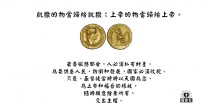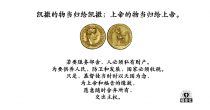如何區分真假使徒?
身為基督的僕人,使徒,應該只傳講基督的話語——恩典之道、赦免之道。
「使徒」既是謙卑的名稱,也是令人驚嘆、讓人敬畏、尊敬的名稱。這個詞同時是極其低微的,又是極其崇高的。
「使徒」的低微是因使徒是被差遣來的人,所以,他要為自己的職責作見證。他的角色就是一位僕人。僕人要顯出對主人的順服。人們不應把「使徒」當成一個榮耀的稱號,而去信靠它,誇耀它,羨慕它。不!人們應當因為使徒的工作,而立刻被吸引到主人基督那裡,因為基督是差遣使徒的人。基督才是授權人。
「使徒」的尊貴和崇高是由基督來的。因為使徒是基督差遣的僕人,所以,他也受人尊敬,被接納。
與「使徒」相反,基督在約翰福音10:8用另外的稱呼,稱呼另一些人,說:「他們是自己來的,不是受差遣的。」 基督解釋說:「他們都是賊,是強盜」。因為,他們不傳講那差遣他們之人的話語。他們反而為了自己的利益,而殺死羊只。 基督說:「所有自己來,不是受差遣來的都是賊和強盜。」那麼傳講自己的教義,人的律法規則,或哲學的人,他們可以被稱為使徒嗎?的確,他們是盜賊強盜,靈魂的毀滅者和屠夫。
如果常常傳講人的話語,只能使良心憂傷,被自己的恐懼禁錮,因為那是律法之道,憤怒或罪之道,它展示出人作不到的事,使人看到自己深陷在罪債中。
所以,教會從來都沒有像今日這樣沒有喜樂,且每日變得更加不喜樂,因為她被這麼多的規則、法律、和法則騷擾,受到幾乎數之不盡的折磨。比起在殉道者時代被虐殺來說,今日的教會更被殘酷虐待。
上帝差遣出他的道,借著這道,上帝醫治他們(
註解一:回到原文詩篇107:20 他發命醫治他們,救他們脫離死亡。
“Apostle” is a modest name but at the same time a marvelously awesome and venerable one, a name which expresses equally both remarkable lowliness and loftiness.
The lowliness lies in the fact that he is sent, thus bearing witness to his office, his role as servant, his obedience. Furthermore, no one should be impressed by the name as being a title of honor, rely on it, or boast of it. No, by the name of the office he should be drawn at once to Him who does the sending, to Him who authorizes it. From Him one then gains a conception of the majesty and loftiness of him who has been sent and is a servant, in order that he may be received with reverence.
These men Christ calls by the apposite name in John 10:8—not “those who have been sent” but “those who come.” And interpreting Himself, He calls them “thieves and robbers,” since they do not bring the Word of Him who sends them to feed the sheep with it but carry off their own gain and thereby slaughter the sheep. “All who came,” He says—that is, were not sent—“are thieves and robbers.”But the man who brings his own dogmas or those that rest on human laws and decrees, or those of the philosopher—can he be called an apostle? Indeed, he is one who comes as a thief, a robber, and a destroyer and slayer of souls.
As often as the word of man is preached, it renders the conscience sad, cramped, and full of fear in itself, because it is a word of the Law, of wrath and sin; it shows what a person has failed to do and how deeply he is in debt. Therefore the church, since its beginning, has never been less happy than it is now; and daily it becomes unhappier, because it is harassed by so many decrees, laws, and statutes, and by almost countless torments, and is far more cruelly weakened than it was by the torturers at the time of the martyrs.
He, namely, God, sent His Word, and in that way He healed them (Ps. 107:20).To put it clearly, this means that as often as the Word of God is preached, it renders consciences joyful, expansive, and untroubled toward God, because it is a Word of grace and forgiveness, a kind and sweet Word.(Lectures on Galatians, 1535)(AE 27:163–165)







